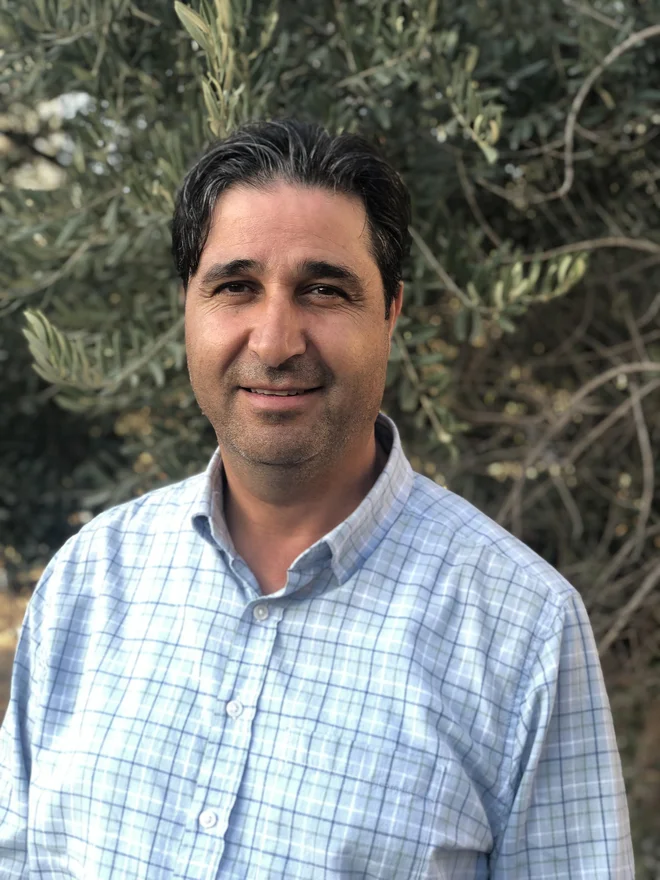« Family judge who decides about children ignores domestic violence, » says researcher
/s3/static.nrc.nl/images/gn4/stripped/data130877209-a30738.jpg|https://images.nrc.nl/Lp0l2I0ZEU8XtYnezlL7YUB9fo0=/1920x/filters:no_upscale()/s3/static.nrc.nl/images/gn4/stripped/data130877209-a30738.jpg|https://images.nrc.nl/7JA84zFmtPqvM6zJ0TSdlJaivbU=/5760x/filters:no_upscale()/s3/static.nrc.nl/images/gn4/stripped/data130877209-a30738.jpg)
The statistics don’t lie. Domestic violence plays a role in about one in five divorces. With complex fight divorces even in half of the things. But steps divorced parents enter the session of the family judge for a case about authority or dealing with the children, then it seems as if domestic violence no longer exists.
After all, insecurity of women and children often do not play a role if the judge examines care, authority and interaction, according to it an investigation From the Verwey-Jonker Institute to domestic violence in family law procedures that will be published this Tuesday. « It is far from obvious to weigh domestic violence because in family law the frame of equivalence mainly dominates, because both parents have the same entitlement to contact with the child and because the future is looked at, » says researcher Katinka Lünnemann.
The investigation that Verwey-Jonker carried out on the initiative of wife and law and trade association Valente took place among 127 lawyers. Discussions were also held with judges and employees of the Child Protection Board, Veilig Thuis and the women’s shelter.
What is the main reason that domestic violence and the impact are often not taken into account in family justice?
« The law stipulates that after divorce there must be equivalent parenting. Idealistic parents who grew apart in the 1990s, but after divorce wanted to be co-parent, fought this principle.
« That domestic violence is not taken into account because care, interaction and authority is about the interests of the child and the right to deal with. Insecurity is not the legal problem that the family law deals with. There, domestic violence is seen as something that belongs to the criminal court. »
Why does domestic violence still do when parents are already separating?
« The point is that it must be investigated which pattern of violence was present. If there has been domestic violence, that does not automatically mean that the perpetrator is no longer allowed to see his child. Research shows that if there was aggression during the relationship, a new balance can be found after the worst tension has been reduced. Then a good access arrangement can also be achieved.
« But it must be obsolete whether it is really safe with both parents. There must be insight into the dynamics and whether it continues. If there is a pattern of coercion, control and intimate terror, then there is a good chance that the pattern of violence will be continued after the divorce.
« It is also important to pay attention to parenting skills. Aggressive or controlling parents take their own needs as a starting point, not those of the children.
« So much more should be looked at from the start at what is in the interest of the child. Then an access arrangement can be made from there. »
How important is it for a child to grow up with both parents?
« Dealing with both parents is the best for the child, if both parents are good educators. There is a lot of research that shows that it is harmful to a child if one of the parents is not allowed to see. But if there is insecurity at one of the parents, it is a different story. It is better for the child to grow with the safe, affective parent with the other parent. »
In your investigation, lawyers indicate that they are not always discussing domestic violence in court because it would deteriorate the position of their client. How then?
« If a lawyer mentions that there is domestic violence, there is a good chance that the client will be labeled as a non-cooperating parent. Although there are absolutely judges who take domestic violence seriously, that is not obvious. Attention for (persistent) domestic violence can be labeled by judges as non-constructive, atmosphere spoiling and diswearing that they are not being able to be a lawy qualancing. accusation. ”
False accusations are of course lurking in these types of sensitive things. How do you prevent it?
« By sorting out something like that, instead of taking the attitude: » Where two fights have two guilt « and » It is too complicated for us, so we do or it does not exist. « There are now too many children who have to go to a father or mother while there is no sufficiently safe and affective situation. They get deeply unhappy and traumatized. We really have to see that. »
Can that be sorted out? An important outcome of the research is that there is too little knowledge with involved professionals.
« Indeed, the investigation shows that judges and lawyers, but also employees of the Child Protection Board or Mediators, have too little knowledge of domestic violence and the various patterns of violence. Hardly any attention is paid to it. »
Why?
« I don’t get my finger behind that either. Nevertheless, there are certainly possibilities to pick it up well and much more can happen than now. »
What could be improved in the short term?
« Our recommendations are two -way. We argue that all legal professionals and certain care providers, such as mediators, are trained on the theme ‘domestic violence’. In addition, a better assessment framework should be introduced, making judges obliged to explicitly include domestic violence in their decisions. »
Read also
Legal cases about divorce insufficient child -friendly. ‘You have chosen that you do not want to be with me those weekends, so that will not happen’

:format(webp)/s3/static.nrc.nl/wp-content/uploads/2024/09/13094817/data121596457-a6a2c9.jpg)
:format(jpeg):fill(f8f8f8,true)/s3/static.nrc.nl/podcasts/wp-content/blogs.dir/131/files/2021/03/haagsezakenfeatured.png)
/s3/static.nrc.nl/images/gn4/data133008088-d0928d.jpg)
/s3/static.nrc.nl/images/gn4/stripped/data133019292-8fde9a.jpg|https://images.nrc.nl/_V11ZT6lBXJd1-GUE7HKgFWv3XQ=/1920x/filters:no_upscale()/s3/static.nrc.nl/images/gn4/stripped/data133019292-8fde9a.jpg|https://images.nrc.nl/vhneOyoQxXGuw-R4ZiPzXreeksE=/5760x/filters:no_upscale()/s3/static.nrc.nl/images/gn4/stripped/data133019292-8fde9a.jpg)




